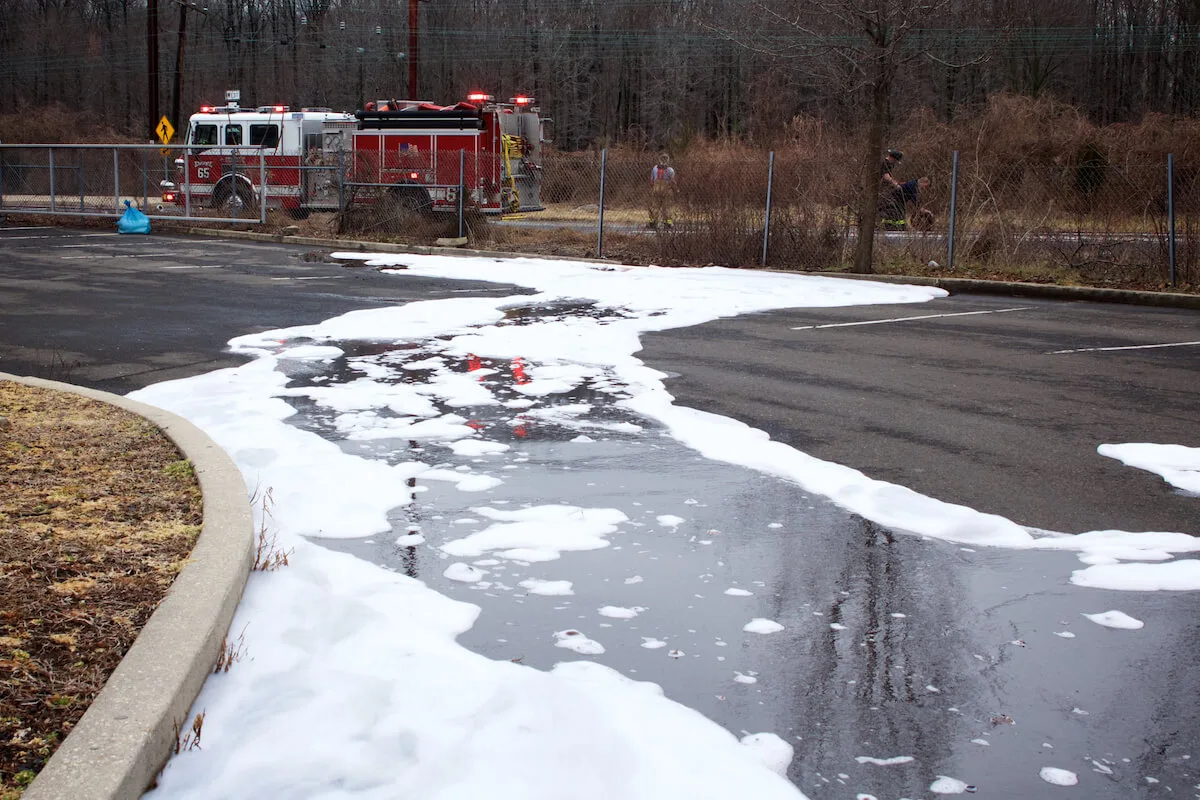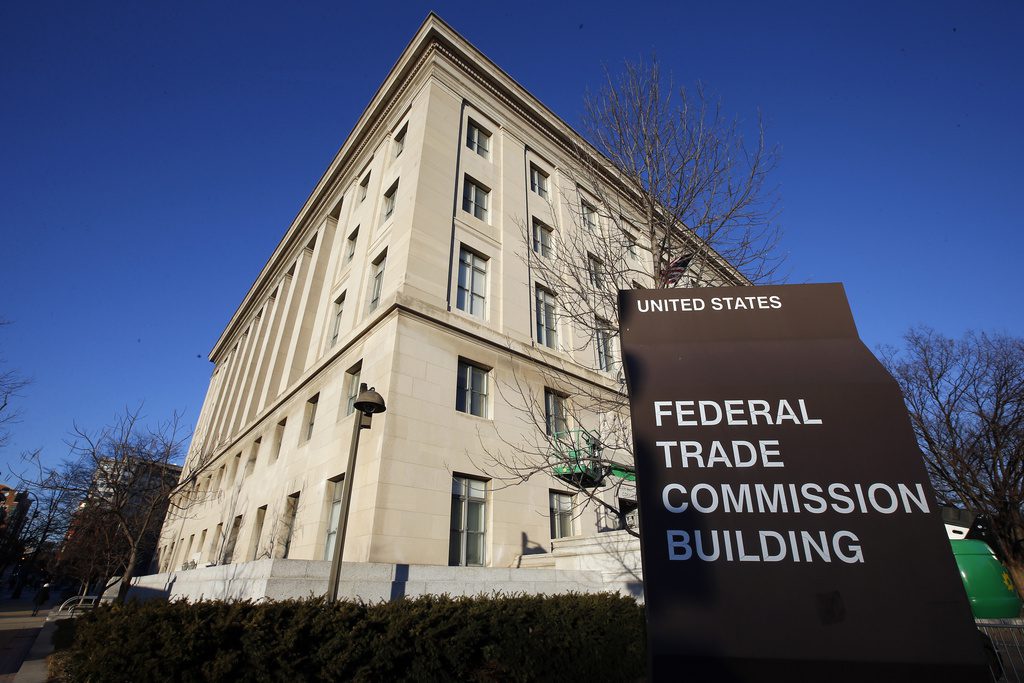
#image_title
#image_title
The legislation would provide municipalities with PFAS cleanup grants on the condition they don’t sue the polluters.
Supporters praised a Republican-backed bill approved by the Assembly Tuesday that would create a new $10 million grant program to clean up pollution from compounds called “forever chemicals,” but Wisconsin environmental groups and Democratic lawmakers decried the fact the legislation lets PFAS polluters off the hook.
The Assembly approved the bill on a 60-38 party line vote, with Republicans favoring the legislation that prohibits communities from suing those responsible for PFAS (per- and polyfluoroalkyl substances) pollution. The bill directs that federal American Rescue Plan Act dollars be used to fund cleanup efforts. Recipients would match 20% of grants they receive.
Tony Wilkin Gibart, executive director of Midwest Environmental Advocates, said Republicans’ directly tying grant funding that helps communities with PFAS cleanup to legal immunity for companies that caused the pollution amounts to “poison pill” legislation.
“It’s outrageous to condition help and support for Wisconsin communities dealing with PFAS contamination and the need for protections against a limitation like this,” he said. “This is an attempt to look like Republicans are offering resources and support for Wisconsin communities. But really, who will be rescued by that funding is PFAS polluters.”
Without protections, Wisconsin residents will be at risk of continued adverse health impacts of PFAS, Wilkin Gibart said. PFAS are called “forever chemicals” because they don’t easily break down in the environment. The substances have been used for decades in such products as firefighting foam and stain-resistant sprays and have been found to cause such health problems as liver damage, cancer, thyroid disease, and decreased fertility.
Republicans contend the bill provides much-needed money to help communities across the state pay for PFAS contamination cleanup.
“This was a broad approach to try and help our municipalities,” said Elijah Behnke (R-Oconto), who introduced the bill and represents Marinette and Peshtigo, two areas most impacted by PFAS pollution. “Is it perfect? No. But I don’t think any legislation is.”
Democratic lawmakers were sharply critical of the bill, saying companies that caused PFAS pollution, not taxpayers, should pay for cleanup.
“This bill puts special interests above the health and safety of the people of Wisconsin,” said Jill Billings (D-La Crosse), whose Assembly district is among those most impacted by PFAS contaminants.
The bill stipulates that any local government accepting grant funding cannot bring legal action against any entity responsible for contamination. It also prohibits the awarding of grants to any group that has already received money from a successful lawsuit.
The grants could be used to address a range of PFAS-related issues, such as pollution site cleanup and sampling of wells.
The measure now goes to the Senate, and if it is approved there it would go to Gov. Tony Evers for his consideration.
EARLIER: Regulations on ‘Forever Chemicals’ Now on Hold After Heavy Corporate Lobbying Push
The bill is supported by Wisconsin Manufacturers & Commerce (WMC), the state’s largest business lobbying group. WMC has opposed previous attempts to regulate PFAS and earlier this year joined Oconomowoc-based dry cleaner Leather-Rich, Inc., in filing a lawsuit against the state Department of Natural Resources contending the agency lacks the authority to require businesses to investigate and clean up PFAS as the compounds are designated as emerging contaminants.
Earlier this month Midwest Environmental Advocates and other state environmental organizations filed a motion in Waukesha County seeking to intervene in the lawsuit. If WMC is successful in that lawsuit, the DNR would not be able to use the “spills law” to investigate PFAS contamination and other pollution, Wilkin Gibart said.
“That is the only real protection we have in Wisconsin right now to regulate PFAS,” he said.
In addition to $10 million to assist with PFAS contamination cleanup work, Evers’ proposed 2021-23 state budget included money to test for the substances in state municipal water systems, new DNR positions to monitor PFAS and the establishment of enforceable PFAS standards. However, Republicans stripped those measures from the budget.
PFAS contamination has been discovered in dozens of Wisconsin communities, and Wisconsin environmental organizations say that number will only grow as more testing is done. Some of the worst pollution is in Marinette, La Crosse, and Madison.
“We don’t know how many sites there are in Wisconsin that are polluted with PFAS,” Wilkin Gibart said. “But we know there are more out there. That is why more testing is so important, so we can know where this pollution is and then do something to try to protect people as best we can.”
Politics

Biden administration bans noncompete clauses for workers
The Federal Trade Commission (FTC) voted on Tuesday to ban noncompete agreements—those pesky clauses that employers often force their workers to...

Opinion: Trump, GOP fail January 6 truth test
In this op-ed, Milwaukee resident Terry Hansen reflects on the events that took place on January 6, the response from Trump and other GOP members,...
Local News

Readers Poll: Top Bowling Alleys in Wisconsin
Looking for the best bowling in Wisconsin? Look no further! Our readers have spoken in our recent poll, and we have the inside scoop on the top...

8 Wisconsin restaurants Top Chef judges are raving about
Top Chef’s 21st season is all about Wisconsin, and on-screen, it’s already apparent that the judges feel right at home here. But, while filming in...



